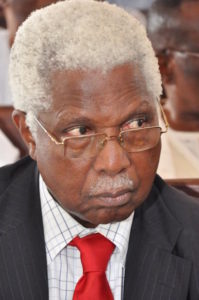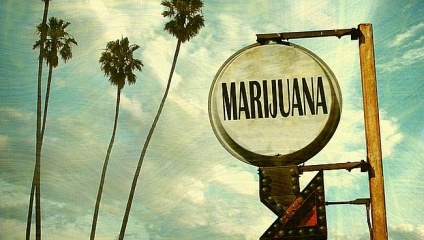By Ochereome Nnanna
THE basis of this article is to prove that Dr. Alex Ekwueme was the greatest symbol of the Igbo people’s struggle to reclaim their place in Nigeria’s socio-economic and political sphere after the Nigerian civil war. On two occasions, he fought and was highly favoured to emerge as the president of Nigeria. He failed because of the decision of the military class to keep the Igbo out of political relevance.
In the first part of this article last Thursday, I narrated how the civilian political class opened its arms to the Igbo nation, barely nine years after the civil war. It was not just the National Party of Nigeria, NPN, that offered Ekwueme its VP ticket. Chief Obafemi Awolowo’s Unity Party of Nigeria, UPN, also (reluctantly) gave its VP slot to Chief Philip Umeadi, a prominent Igbo lawyer.

While the civilians were eager for national reintegration, the mood in the military was quite different. They were determined to punish the Igbo for the first coup of 1966 which led to the death of prominent Northern leaders, and also for the civil war “rebellion.”
The strategic and ideological purpose behind this ploy is beyond the scope of this series. Suffice it to say that shunting the Igbo nation aside opened up the oil-rich Eastern region for mindless exploitation, which has lasted till date. With the Igbo out, the Eastern Minorities were glad to be seen as the new favourites of the North and West in the East, until their “eyes opened” in the 1990s and they started the agitations for resource control, sometimes with violent armed assertion.
The military, as we noted in the first part, sealed by law, the seizure of Igbo “abandoned properties” in Port Harcourt, two days before handing over power to civilians in 1979 through Decree 90. Ekwueme, being a major investor in real estate in that area and beyond, was hard-hit.
As President Shehu Shagari’s Deputy, Ekwueme enjoyed enormous latitudes of trust over contracts and procurements, making sure to keep corruption to the minimum in that regime. He was one of the very few Nigerian leaders who were officially reported to have come out of public office poorer than they went in (as per the Justice Sampson Uwaifo Panel report clearing him of corruption).
The then ruling NPN was the first party to adopt the zoning formula, which was meant to give all sections of Nigeria a sense of belonging. After Shagari and Ekwueme were re-elected in 1983, Ekwueme’s profile had risen so much that he was already highly expected to benefit from the NPN zoning principle and succeed Shagari as President in 1987. No other Southern leader seemed to fit into that role more than him. It is widely believed that the principal reasons for the 1983 coup were that (a), the still very young military boys who fought the civil war were hungry to retrieve power from the civilians and, (b) they were not ready to accept an Igbo as their president.
In fact, the vengeance still boiling in the minds of most of them manifested in the ways the Major-General Muhammadu Buhari regime maltreated Ekwueme. While Shagari was kept in a plush home on house arrest, Ekwueme was taken to Kirikiri Maximum Prisons where he spent two years, and was released only after Buhari had been overthrown.
Ekwueme went into political hibernation from the moment he regained freedom in January 1986. During this period, he refused to grant interviews or participate in public affairs. He did not surface from it until April 1994 when he accepted the offer to lead the Igbo delegates (along with Dim Chukwuemeka Odumegwu Ojukwu) to the Abacha Constitutional Conference (1994 to 1996).
At the Conference, he fought to actualise the Igbo Agenda meant to bring some changes in the geopolitics of Nigeria. These included the rotational presidency/zoning, creation of the six geopolitical zones, the 13 per cent derivation policy for oil-producing areas, among others. This pitted him against many of his Northern friends and political allies, but Ekwueme, who finished as the Most Distinguished Delegate to that Conference, stood his ground.
After the Conference, he volunteered to chair the various meetings of the political class aimed at forcing General Sani Abacha to give up his plans to transform into a civilian president. He led the All Politicians Summit meetings, which eventually became the G.34. After Abacha suddenly died on 8th June 1998, the G.34 transformed into the People’s Democratic Party, PDP, and Ekwueme immediately stood out as the most logical presidential candidate of that great movement. When the late Chief Bola Ige noticed this, he pulled out of the PDP and formed his Alliance for Democracy, AD, taking majority of his South-West colleagues with him.
The military struck again. General Abdulsalami Abubakar, the Head of State, got in touch with General Ibrahim Babangida. They later reached out to General TY Danjuma and prominent Northern leaders such as Atiku Abubakar, Sule Lamido, Jibril Aminu and others. They decided to give the presidential ticket of the biggest party, the PDP, to a Yoruba man of their choice to compensate for Moshood Abiola’s annulled mandate. The lot fell on General Olusegun Obasanjo, who was serving jail term for treason. Obasanjo got elected president. By 2003, he was strong enough as an incumbent to beat Ekwueme to the party’s ticket, thus ending the political ambition of the Oko-born architect.
Since then, the military has continued to call the shots in the leadership of this country. Obasanjo selected Alhaji Umaru Yar’Adua to succeed him after failing to obtain a third term. He also selected Dr Goodluck Jonathan as Yar’Adua’s running mate, sidetracking the more popular and accomplished leader, Dr Peter Odili, obviously because of his Igbo background. When Jonathan seemed to have become the preferred candidate of the Igbo nation, the military joined forces, along with their civilian partners, to enthrone Major General Muhammadu Buhari in 2015. Buhari has since returned Nigeria to the 1966-70 and 1984-85 mode, where the Igbo were sidelined from power, thus precipitating the resurgence of Biafra agitations.
Ekwueme, the symbol of the Igbo struggle against the military to reclaim their place in Nigeria’s mainstream, is gone. So are his military traducers going, one after the other. That page of our history is expiring through natural means. The nation will regain its rightful opportunity to become one, once the win-the-war rapacious military class is gone.


